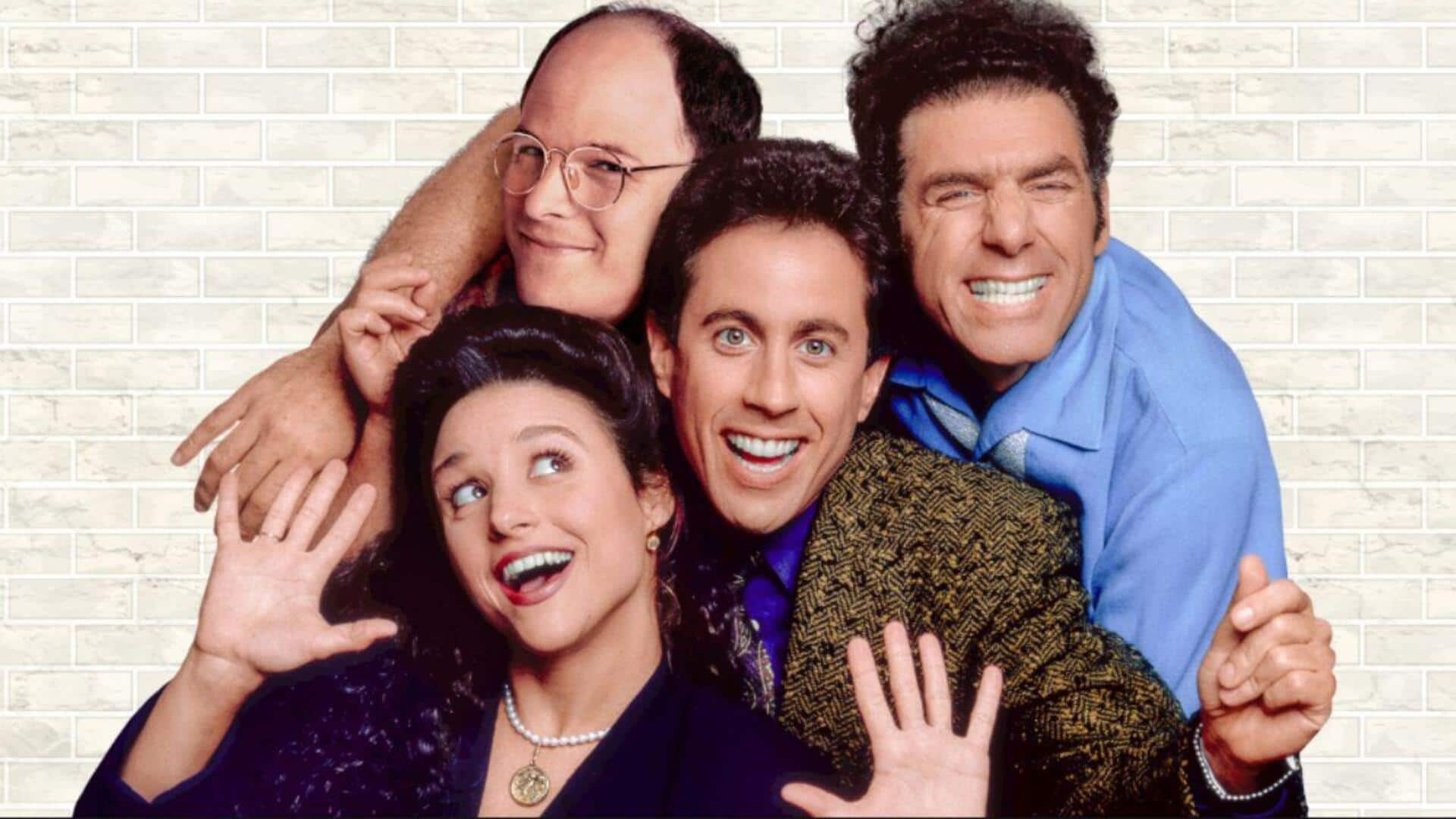
The 'Seinfeld' catchphrases that became part of everyday life
What's the story
Seinfeld, a show about nothing, became a cultural phenomenon, thanks in part to its memorable catchphrases. These phrases have gone beyond the show, becoming part of our everyday vocabulary. Knowing the story behind these catchphrases and their impact gives us an idea of why they struck a chord with audiences. From "yada yada yada" to "no soup for you," every phrase has its own story that made the show unforgettable.
#1
The origin of "yada yada yada"
The phrase "yada yada yada" gained prominence from Seinfeld in an episode where the protagonist used it as a funny way to skip boring details in a conversation. The catchphrase caught on quickly as it summed up a common conversational tactic in a funny way. Its simplicity and relatability made it easy for viewers to adopt into their own vernacular, showing how Seinfeld often mirrored real-life interactions.
#2
The story behind "no soup for you"
No soup for you went on to become one of Seinfeld's most iconic dialogues after its appearance in an episode focused on a strict soup vendor - the Soup Nazi. The line encapsulated the absurdity and humor of applying rigid rules to everyday situations. It connected with audiences who found humor in everyday annoyances, transforming what could have been an ordinary scene into something legendary.
#3
How "Not that there's anything wrong with that" became iconic
This phrase stemmed from an episode where characters's orientations were misunderstood. It was used again and again to show acceptance while keeping the sensitive topic at a comedic distance. Its overuse emphasized what society thought then, making it both funny and thought-provoking without being offensive or dismissive.
#4
The impact of "these pretzels are making me thirsty"
Originally spoken by Kramer during his short-lived career in acting, this line became famous for its delivery, not context. It became an inside joke among fans who loved how random and versatile it is in different situations outside the show's narrative structure. It shows how even the most insignificant of lines can catch on when delivered with perfect comic timing.